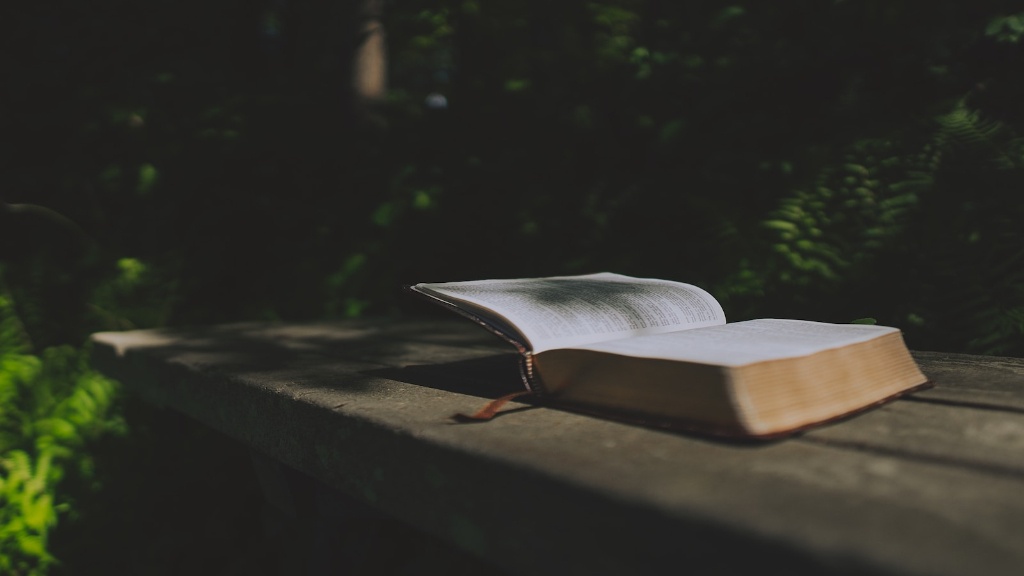Poetry editors play an important role in helping poets to produce work that is fresh, exciting and significant. They are responsible for helping authors develop and refine their work in ways that may not be possible without their expertise and guidance. Poetry editors help poets to identify and resolve potential problems in the work, such as awkward phrasing, unnecessary detail, and weak plot lines. They may also assist with the selection and order of the poems included in a book or anthology, as well as the titles and other aspects of the book’s design.
In addition to helping authors develop new works, poetry editors are often responsible for suggesting suitable publishing opportunities for previously unpublished work. Editors may suggest literary magazines or contests, discuss publication strategies and plans, and work closely with publishing houses and publicists in order to make the work available to a wider audience. The editor plays an integral role in ensuring that the poet’s work reaches its greatest potential.
In the digital age, the role of a poetry editor is shifting, as more and more authors self-publish their work. No longer is the traditional publisher the primary gatekeeper — poets today can publish their own work digitally, through social media, and even in physical form via print-on-demand services. The poetry editor’s role then shifts to one providing guidance, constructive criticism, and support to the self-publishing poet.
This support does not end when the poem is published — poetry editors may also provide feedback, editing suggestions, and advice to ensure the poem meets a high standard of quality and that it is distributed to the widest possible audience. They also assist with marketing tasks, such as selecting and organizing the most effective outlets for distributing the poem.
In short, poetry editors provide a range of important services to the poet, from offering constructive feedback on content and form to helping identify the most suitable publication outlets for the work. Their guidance and expertise can prove invaluable for poets looking to launch or further their careers.
Analysis of Experiences
For many poets, the relationship they have with their editor is invaluable. By working closely with a trusted expert, poets can gain invaluable guidance, advice and feedback on their work, as well as developing a better understanding of the publication process. Poetry editors may help poets to gain insight into their work, thus enabling them to make more informed decisions and taking greater control of their projects.
It is important to note, however, that working with an editor may not be suitable for all poets or scenarios. Many poets are passionate about their work and may be reluctant to have it critiqued or modified in any way. Additionally, some poets may have a strong opinion on how their work should be presented and thus may be hesitant to allow an editor to become involved. In such cases, it is important to ensure that a clear understanding is achieved between the poet and the editor about their respective roles and expectations before committing to a working relationship.
Furthermore, it is important to keep in mind that the aims of the poem and the poet must be considered when working with an editor. While an editor may offer invaluable insight, they may also not be as familiar with the poet’s intentions as the poet themselves. Thus, it is important to provide clear guidance and direction to the editor, in order to ensure the poem is presented in the manner the poet intends.
Benefits of Working with an Editor
For many, working with a professional poetry editor can provide a range of benefits. Working with an editor allows the poet to benefit from the expertise and experience of another person, who can offer invaluable advice and guidance to assist in the production of the best possible work. One of the primary benefits of working with an editor is the objective perspective they bring to the project. An editor can help to identify potential problems and suggest solutions, as well as helping the poet to gain insight into their work. Writers may become too close to their material, and a fresh pair of eyes can help to identify weak points and ways to improve the work.
Editors can also provide valuable feedback and critiques on the work and suggest alternative approaches or techniques that the poet may not have otherwise considered. Additionally, editors can help to identify suitable publications or outlets for the work – an important task, as publication can be essential to advancing a poet’s career. Ultimately, working with an editor can help to ensure that a poet’s work reaches its full potential and is presented to the widest possible audience.
Need for Editing
The vast majority of poets need the assistance of an editing professional in order to produce the best possible work. Professional editing can be essential to improving the quality of the work, as well as increasing its chances of publication. In particular, an editor can help to identify potential problems with the work, such as weak structure, excessive detail, and awkward phrasing. An editor can help to resolve these issues, as well as suggesting alternative approaches that may be more suitable for the poem.
Furthermore, an editor can provide guidance on the selection and arrangement of the poem’s content, thereby ensuring that the poem is presented in the most effective manner. Additionally, an editor can provide assistance with regards to the poem’s title, design, and other aspects of the publication process that may be foreign to the poet.
In short, having an expert on hand who is familiar with the poet’s work can be essential to making the work the best it can be. An editor can help to identify potential problems and suggest solutions, as well as assisting with the selection, arrangement and presentation of the work.
Working with Multiple Editors
In addition to working with a single editor, many poets choose to enlist the services of multiple editors in order to benefit from a range of expert perspectives. Working with multiple editors can help to ensure the work achieves the highest possible standard. By obtaining feedback from a number of professionals, poets can gain valuable insight into their work and further refine it until it is of the highest quality.
Additionally, working with multiple editors allows poets to identify potential problems with the work and identify alternative approaches or solutions the poet may not have considered. Furthermore, multiple editors can provide assistance with a range of tasks, such as selection, arrangement and design of the work, as well as suggesting suitable publication opportunities. Ultimately, working with multiple editors can be beneficial to the poet, as it enables them to gain a greater understanding of their work and benefit from a range of expert opinions.
Finding an Editor
For many poets, finding an editor can seem daunting. Fortunately, there is a range of resources available to poets looking for an editor. Many literary magazines, for example, offer editing services, as do literary agents, publishing houses, and professional organizations. Additionally, many poets choose to enlist the services of freelance editors, who can provide valuable guidance and feedback to the poet.
Additionally, poets can look for editors online. Many websites specialize in connecting poets with experienced editors. Additionally, many editors advertise their services on social media or have professional websites detailing their services.
Ultimately, the best way to find an editor is to carefully research the options available and to take the time to find an editor whose goals align with those of the poet. Additionally, it is important to consider the editor’s experience and the type of work they specialize in. Finding the right editor can be essential to making the best of the poet’s work.
Payment for Editing
The cost of working with an editor can vary significantly, depending on the type of help being sought and the editor’s experience and rates. Many editors charge an hourly rate or flat fee for their services. Additionally, many offer discounts or special rates for those working on a budget. For those unable to pay for an editor, there are some organizations, such as the Society of editors, that offer free editing advice.
In general, however, it is important to note that editors should always be paid for their work, to ensure they receive appropriate compensation for the services being provided and to ensure the highest quality of work is produced. Ultimately, the cost of engaging an editor will depend on the poet’s budget, the type of services they require, and the editor’s rates.
Conclusion
Poetry editors play an invaluable role in helping poets to produce the best possible work. These editors are responsible for providing guidance, advice, feedback and expertise to the poet, assisting them in producing the finest work possible and ensuring it is presented to the widest possible audience. Working with an editor can prove beneficial for most poets, as it allows them to benefit from the expert perspective of another person, who can identify potential problems and suggest solutions.
Finally, it is important to remember that finding the right editor, who can provide the right level of advice and feedback, is essential. Additionally, it is important to ensure they are compensated appropriately for their work. Ultimately, engaging the services of a professional editor can benefit most poets, particularly those looking to launch or further their career.





